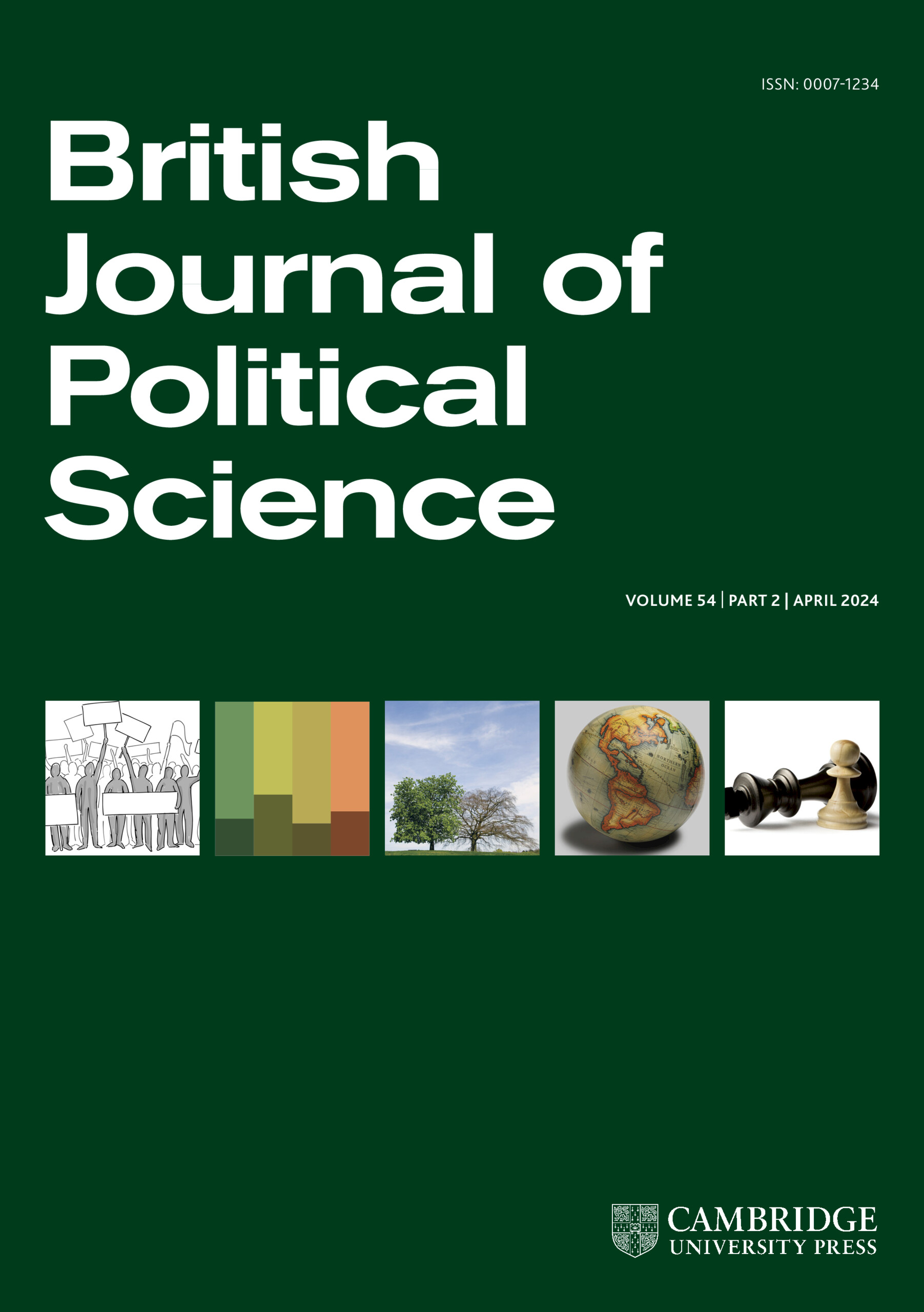谁不喜欢谁?西方民主国家两党之间的情感两极分化
IF 4.6
1区 社会学
Q1 POLITICAL SCIENCE
引用次数: 13
摘要
摘要尽管对对立政党的厌恶,即情感两极分化,是当代政治的一个决定性特征,但对这一主题的研究主要集中在美国。我们介绍了一种分析两党之间情感两极分化的方法,将美国两党制和其他民主国家的多党制联系起来。分析20世纪90年代中期以来20个西方民主国家的调查数据,首先,我们发现党派人士对外部政党的厌恶与精英在经济问题上的政策分歧有关,随着时间的推移,也与文化问题有关。其次,我们认为并实证证明,议会民主国家的执政联盟伙伴对彼此的感情比我们基于精英政策协议的预期要温暖得多。第三,我们表明,基于政策争端和联盟安排,激进右翼政党受到的厌恶比我们预期的要强烈得多。这些发现突出了情感两极分化的政策基础和制度基础。本文章由计算机程序翻译,如有差异,请以英文原文为准。
Who Dislikes Whom? Affective Polarization between Pairs of Parties in Western Democracies
Abstract While dislike of opposing parties, that is, affective polarization, is a defining feature of contemporary politics, research on this topic largely centers on the United States. We introduce an approach that analyzes affective polarization between pairs of parties, bridging the US two-party system and multiparty systems in other democracies. Analyzing survey data from twenty Western democracies since the mid-1990s, first, we show that partisans' dislike of out-parties is linked to elite policy disagreements on economic issues and, increasingly over time, also to cultural issues. Secondly, we argue and empirically demonstrate that governing coalition partners in parliamentary democracies display much warmer feelings toward each other than we would expect based on elite policy (dis)agreements. Third, we show that radical right parties are disliked much more intensely than we would expect based on policy disputes and coalition arrangements. These findings highlight the policy-based and institutional underpinnings of affective polarization.
求助全文
通过发布文献求助,成功后即可免费获取论文全文。
去求助
来源期刊

British Journal of Political Science
POLITICAL SCIENCE-
CiteScore
8.70
自引率
4.00%
发文量
64
期刊介绍:
The British Journal of Political Science is a broadly based journal aiming to cover developments across a wide range of countries and specialisms. Contributions are drawn from all fields of political science (including political theory, political behaviour, public policy and international relations), and articles from scholars in related disciplines (sociology, social psychology, economics and philosophy) appear frequently. With a reputation established over nearly 40 years of publication, the British Journal of Political Science is widely recognised as one of the premier journals in its field.
 求助内容:
求助内容: 应助结果提醒方式:
应助结果提醒方式:


